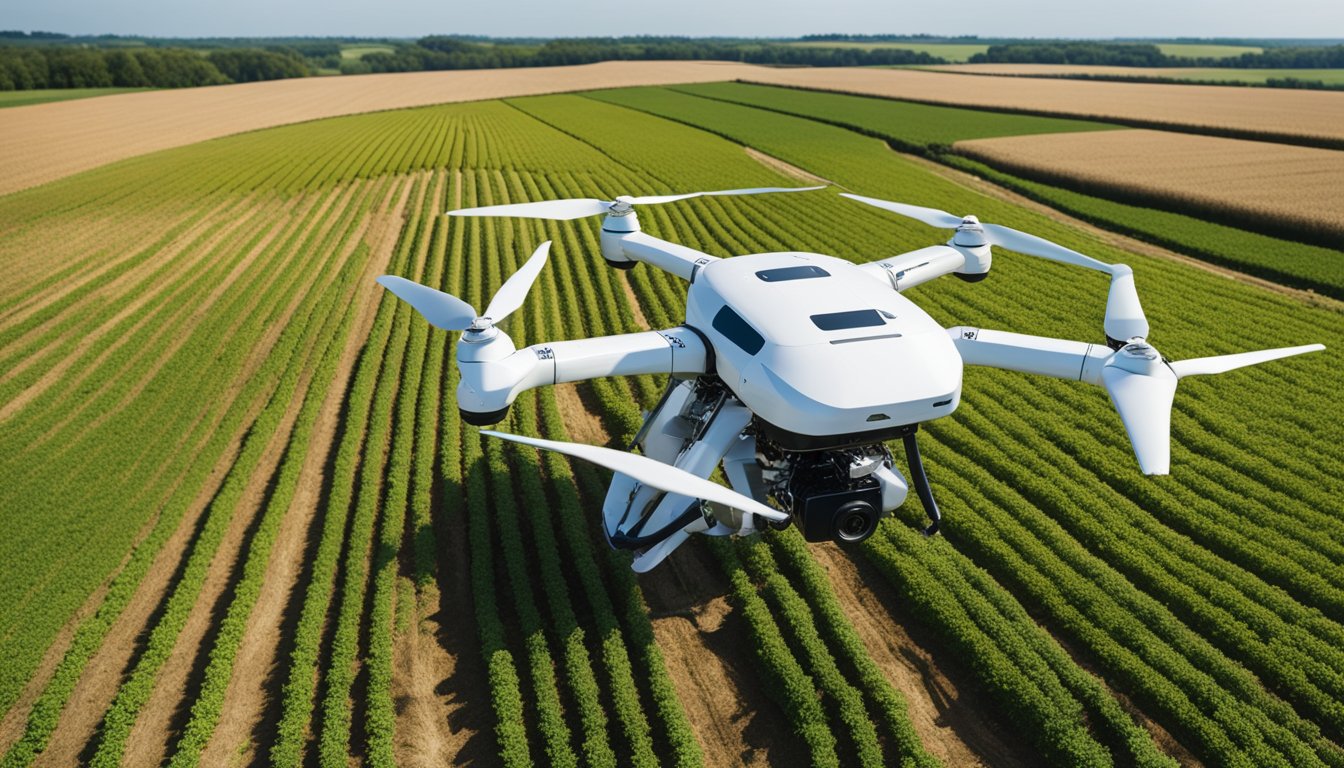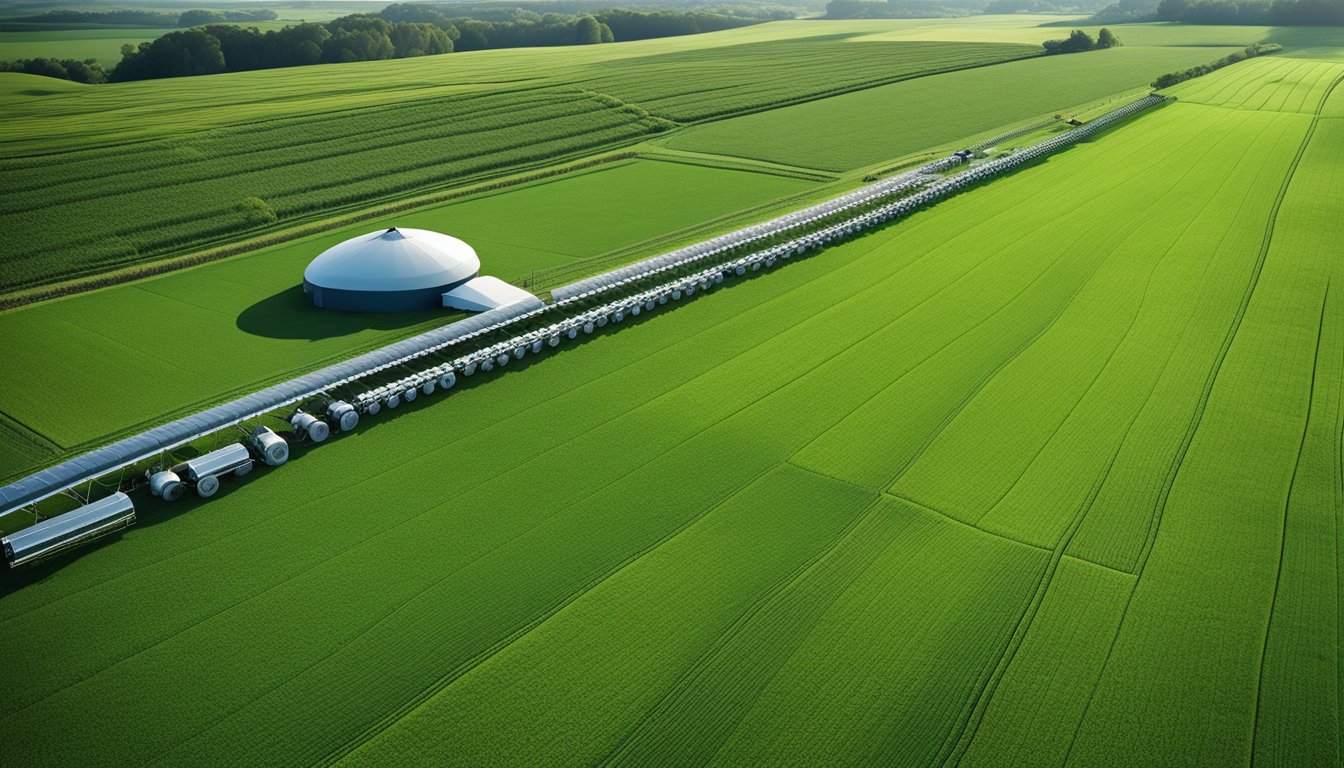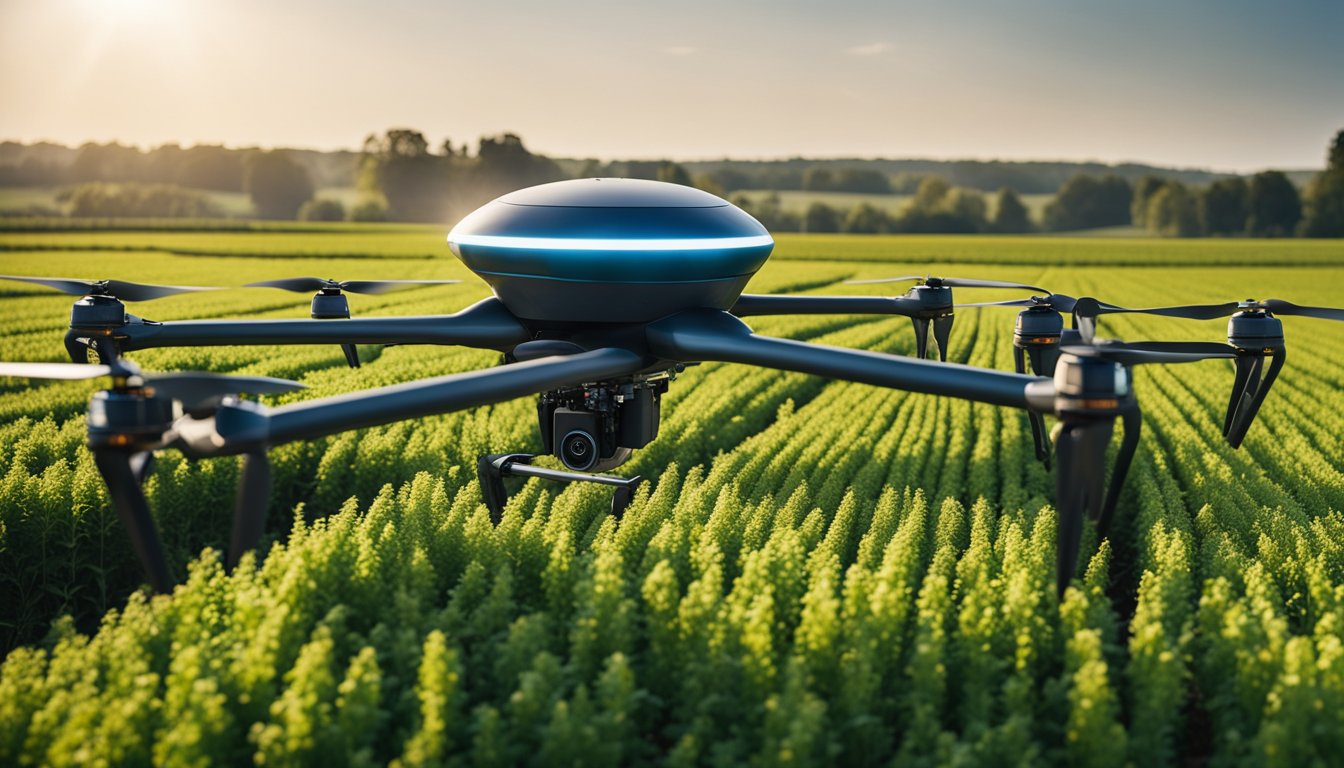Late updated: 13 Feb 2025 15:02
Written by: Oliver Bennett
AI Innovations Transforming UK Agriculture Practices: Future Trends and Developments
In the rapidly evolving landscape of UK agriculture, artificial intelligence is playing a pivotal role in transforming farming practices. These advances are not merely incremental; they are redefining how agriculture operates, making it more efficient and sustainable. Our exploration reveals that AI-driven technologies have become essential tools, enabling UK farmers to enhance productivity while reducing environmental impact.

As we delve into this world of AI innovation, it becomes clear that precision farming and digital transformation are at the forefront of modern agriculture. By incorporating technologies such as robotics, machine learning, and GPS, UK farmers are better equipped to tackle the challenges of climate change and resource management. These technologies not only improve crop yield but also help in reducing waste, ensuring a stable food supply for the nation.
The strategic impact of AI innovations extends beyond the immediate benefits of increased efficiency and sustainability. By transforming the agricultural sector, we are fostering a more resilient economy and ensuring the UK's position as a leader in sustainable farming practices. Through integrating innovation and tradition, our journey into AI-enhanced farming holds the promise of a brighter, more sustainable future for agriculture in the UK.
Key Takeaways
- AI technologies are transforming UK agriculture for greater efficiency.
- UK farmers use AI for sustainability and resource management.
- AI boosts productivity, positioning the UK as a leader in agriculture.
AI-Driven Farming Enhancements in the UK

AI is reshaping UK agriculture with cutting-edge solutions that improve efficiency, resource management, and animal welfare. The seamless integration of smart farming tools is leading to significant advancements across various agricultural facets.
Advancements in Crop Management
In the UK, precision agriculture is taking centre stage with the use of AI to enhance crop management. Machine learning algorithms analyse vast amounts of data from satellites and sensors to forecast weather patterns, diseases, and pest outbreaks. This leads to better crop monitoring and optimal irrigation schedules, thus maximising crop yield.
Digital twins have emerged as pivotal tools, allowing farmers to simulate crop growth under different environmental conditions. By leveraging data analytics, we can make more informed decisions about sowing and harvesting times, leading to improved crop outcomes. Such AI-driven strategies are indispensable for tackling climate change challenges.
Sustainable Practices Through Smart Farming
AI-smart tools facilitate the adoption of sustainable farming practices across various regions in the UK. By employing AI for soil health monitoring, we can recommend precise nutrient applications, reducing the environmental impact of agriculture. These practices ensure efficient use of fertilisers and minimise water usage.
Robotics and other automated systems enable precise resource management, significantly cutting down on wastage and promoting sustainable farming. As a result, the ability to maintain soil integrity and enhance crop production while protecting natural resources is pivotal for the future of UK agriculture.
Improving Livestock Welfare with AI
AI technologies are revolutionising how we manage livestock across the UK. With AI-powered livestock management tools, we can monitor the health and welfare of animals more closely. Early detection of illnesses through AI reduces suffering and saves costs on treatment.
Robotic milking machines are now common, providing better monitoring and ensuring optimal output without stressing the animals. These tools advocate for improved living conditions and reduced human error in livestock care. Implementing such technology not only improves animal welfare but also enhances productivity for farmers, making it a win-win solution.
Strategic Impact on UK Agricultural Sector

In recent years, AI innovations have become integral to transforming the UK agricultural sector. These technological advancements significantly affect food security, environmental sustainability, and data ethics.
Optimising Food Security and Supply Resilience
AI is pivotal in enhancing food security by improving yield prediction and supply chain efficiency. Machine learning algorithms analyse vast agricultural datasets, enabling farmers to anticipate market demands and adjust production accordingly. This proactive approach reduces waste and optimises resource use, strengthening the UK's resilience to supply chain disruptions.
Moreover, weather forecasting technologies empowered by AI help farmers prepare for adverse conditions, safeguarding crop yields. These innovations empower us to navigate uncertainties, ensuring a stable and resilient food supply.
Balancing Productivity and Environmental Sustainability
AI contributes to balancing productivity with sustainability goals. Precision agriculture technologies allow for targeted use of resources, minimising waste and lowering the carbon footprint. Optimising resource efficiency—such as water and fertiliser application—ensures that productivity does not come at the expense of the environment.
Furthermore, sustainable farming practices aided by AI help mitigate environmental impacts, supporting our commitment to environmental sustainability. Through these measures, we make strides towards greener agriculture while maintaining or increasing productivity levels.
Data Challenges and Ethical Considerations
The integration of AI in agriculture brings data privacy and ethical concerns. Handling large datasets involves risks related to data security and the potential misuse of information. Ensuring that farmers' data rights are safeguarded is critical as we adopt these technologies.
Blockchain technology offers solutions by providing transparent and secure data management. However, we must balance embracing technological advancement with the ethical implications, ensuring that innovations serve the broader good without compromising privacy or exploiting resources. This delicate balance ensures ethical stewardship over the technological transformation in agriculture.
Frequently Asked Questions
Artificial intelligence is playing a transformative role in UK agriculture, enhancing precision farming, crop management, and sustainability efforts. Key areas impacted by AI include precision farming techniques, crop yield predictions, animal husbandry improvements, sustainable practices, climate change adaptation, and addressing labour shortages.
How is artificial intelligence enhancing precision farming in the UK?
AI systems help British farmers by providing real-time insights into soil health, water levels, and pest infestations. These technologies allow fine-tuning of farm operations, leading to improved efficiency and better resource management. Digital twins also enable farmers to anticipate weather risks, making agriculture more resilient. These innovations contribute to precise decision-making in the farming process.
What are the impacts of AI on crop yield predictions and management in UK agriculture?
By utilising AI technologies, farmers can make more accurate predictions about crop yields. Machine learning algorithms analyse various data points, such as weather patterns and soil conditions, to forecast potential outcomes. This helps in planning and optimising crop management strategies, ultimately improving overall productivity and reducing waste.
In what ways is machine learning being utilised to improve animal husbandry practices?
Machine learning is revolutionising animal husbandry by monitoring animal health and behaviour. These systems track feeding patterns, detect diseases early, and even monitor environmental conditions to ensure optimal living conditions. By harnessing such technologies, farmers can enhance the welfare of livestock, resulting in better productivity.
What role does AI play in sustainable agriculture and resource management in the UK?
AI contributes significantly to sustainable farming by improving resource management practices. It helps in optimising irrigation, fertilisation, and pest control methods, leading to reduced environmental impact. By using AI to monitor fields and manage resources efficiently, British farmers can support sustainable agricultural practices and ensure long-term viability.
How are UK farmers adopting AI technologies to combat challenges posed by climate change?
Farmers in the UK are embracing AI to tackle climate-related challenges by using predictive analytics to adapt to changing weather patterns. AI tools enable them to implement more resilient cropping strategies and optimise resource use. This adoption helps mitigate the adverse effects of climate change and ensures the stability of farm outputs.
Can artificial intelligence contribute to addressing labour shortages in the British agricultural sector?
AI offers solutions to labour shortages through automation and robotics. Technologies such as automated harvesting machines and precision sowing equipment reduce dependency on manual labour. This shift not only alleviates the labour shortage but also enhances efficiency and productivity, allowing the agricultural sector to cope better with workforce challenges.
